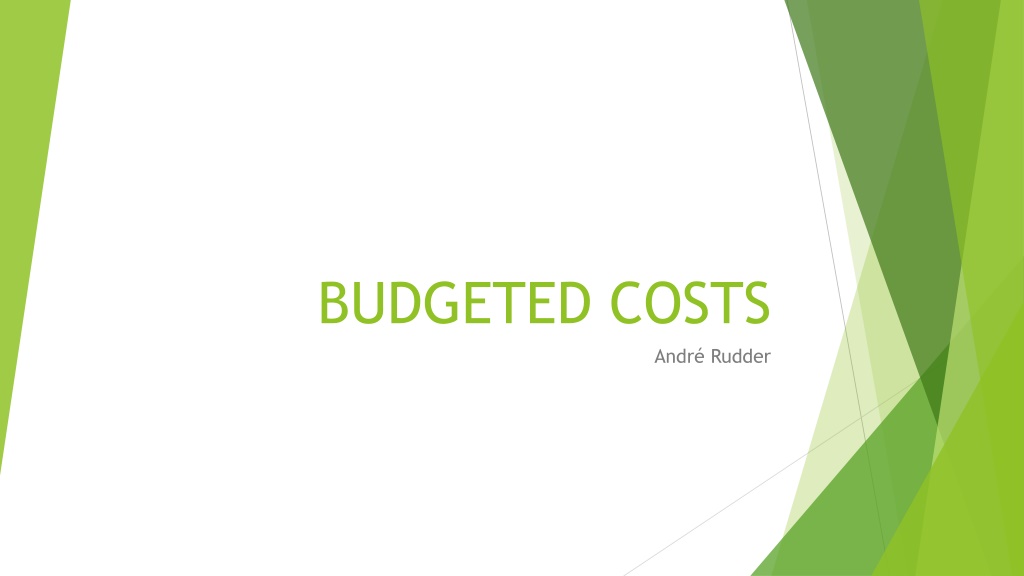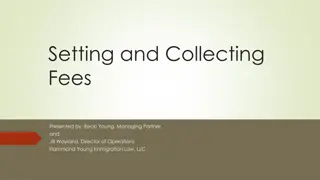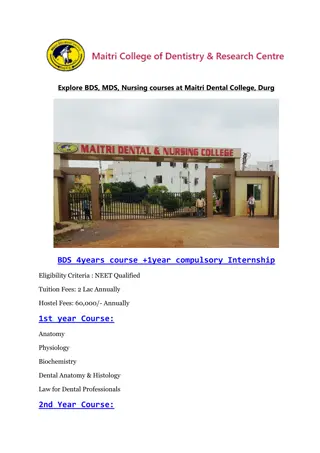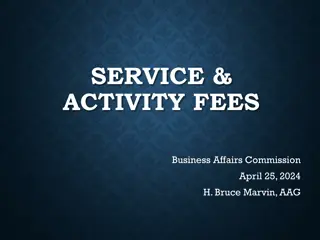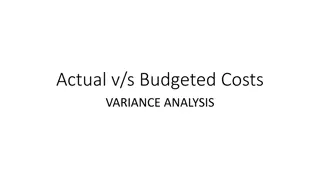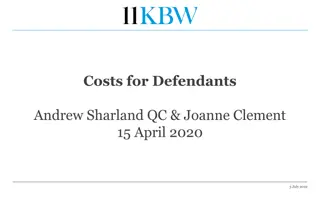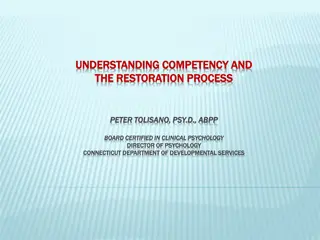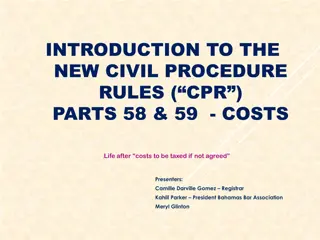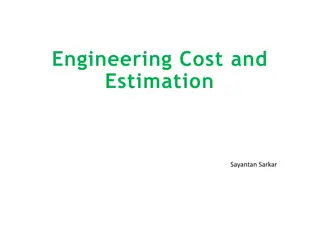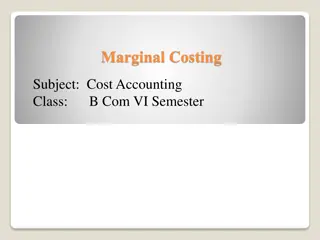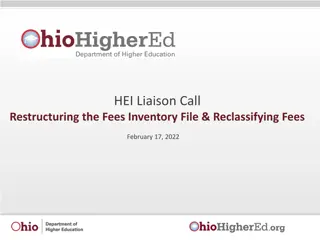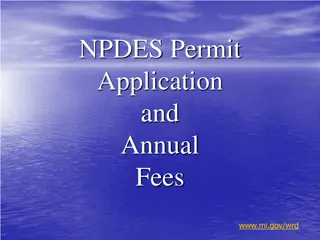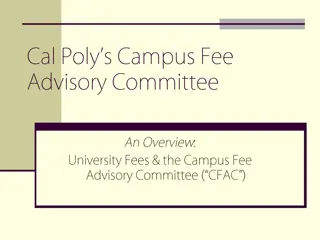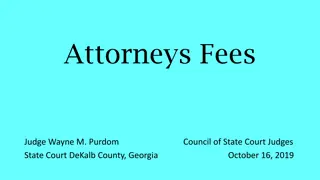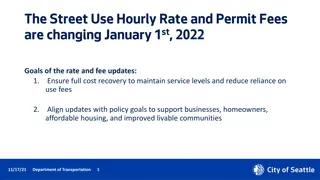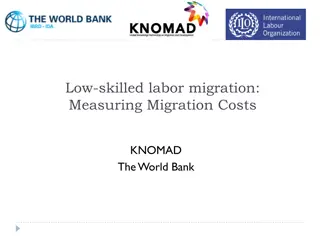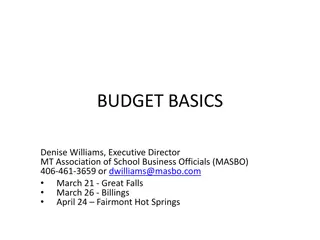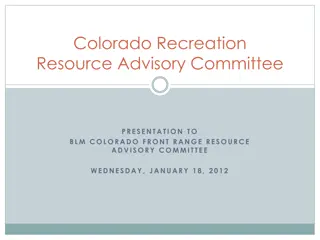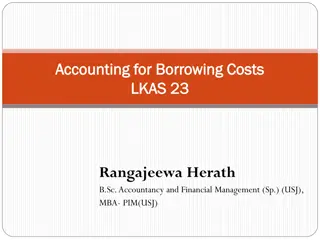Understanding Budgeted Costs and Fees in Legal Proceedings
Budgeted costs and fees in legal proceedings play a crucial role in determining the financial aspects of a case. Parties can set cost budgets, which, when approved by the court, cap the overall cost exposure. This approach helps in effective cost management, especially in cases involving complex issues where unquantified sums are claimed. The application process involves setting a budget, understanding necessary forms, and ensuring client consent before filing. By adhering to these processes, parties can achieve clarity and control over their financial obligations in legal matters.
Download Presentation

Please find below an Image/Link to download the presentation.
The content on the website is provided AS IS for your information and personal use only. It may not be sold, licensed, or shared on other websites without obtaining consent from the author. Download presentation by click this link. If you encounter any issues during the download, it is possible that the publisher has removed the file from their server.
E N D
Presentation Transcript
BUDGETED COSTS Andr Rudder
FEES vs COSTS COSTS: Costs or "costs orders" are about getting a court order that one party should pay all or some of the charges incurred by another party of and incidental to the proceedings. Cost determinations are usually done at the end of a case, or the end of an interim hearing. Costs can be : Prescribed Assessed Budgeted FEES: payment to attorneys for their time/expertise Fees are often included within costs
Prescribed Costs Part 67, Appendix B Scale of prescribed costs: Value of claim: Not exceeding $30,000 [30%] [25%] [20%] [15%] [10%] [7.5%] [5%] [2.5%] [1%] [.5%] Exceeding $30,000 but not exceeding $50,000 $50,000 but not exceeding $100,000 $100,000 but not exceeding $250,000 250,000 but not exceeding $500,000 $500,000 but not exceeding 1m 1m but not exceeding 2m 2m but not exceeding 5m Exceeding 5m but not exceeding 10m Exceeding 10m
What is a budgeted costs application? Definition Allows a party to set a costs budget for the proceedings Benefits Once agreed by the court, costs cannot exceed the maximum agreed figure Gives litigants an understanding of their overall cost exposure by keeping costs capped Effect Not mandatory: a party MAY apply to the court to set a costs budget for the proceedings Costs will NOT exceed the approved budget Effective cost management tool furthering the overriding objective of saving expense
WHEN must I make such an application? AT OR BEFORE the first case management conference CPR r67.8(2) WHY should I make such an application? If the matter involves novel and complex issues of fact and law (Sirju and Samuel v AG of Trinidad and Tobago CV2014-03454) Such applications are usually made when litigants are claiming UNQUANTIFIED sums, for example damages at large In the absence of a cost budget, a litigant will only be entitled to prescribed costs
FORM OF THE APPLICATION BILL OF COSTS Attorney s hourly rate Breakdown of costs already incurred (commencement of litigation- 1st CMC) Breakdown of estimated future costs Disbursements Court filing fees Photocopying/scanning NB- Before a budgeted costs application can be filed, the court must have consent from the client as the client must understand/endorse such application (CPR r67.9) Such consent must be in a SEPARATE document and have the following elements: Signed by the lay party Deals only with the question of budgeted costs States the attorney-at-law s estimate of what prescribed costs appropriate to the proceedings would be Gives an estimate of the total costs of the proceedings as between attorney-at-law and client Sets out the basis of that estimate including the amount of any hourly charge. 3G Technologies & Ors v Rudranand Maharaj CV2014-02872 the written consent of the client must comply strictly with the provisions of r67.8(4)(a) and r67.9 CPR
Application by consent order or must the court review? The order setting a costs budget may not be made by consent of both parties The court must review and approve the application for a budgeted costs order The court will apply the PROPORTIONALITY test Notice of application for an order as to budgeted costs cannot merely be an effort to seek higher costs than those set out under the prescribed costs regime Scotiabank Trinidad and Tobago Limited v Bank Employees Union Civil Appeal No. 187 of 2010 However, costs must not only be reasonably incurred and reasonable in amount but should also be proportionate. What proportionality seeks to do is to impose a sensible correlation between the costs a party may recover and the claim. It acts as a counter- weight to disproportionately high costs....(Paragraph 49) Mendonca JA
VAT? A party who is not himself registered for value added tax may add the appropriate amount of VAT to the amount of any, prescribed, assessed or budgeted costs awarded to him (r67.13)
Remember Costs are always DISCRETIONARY Court will look at the factors in CPR r66.6(5) to determine costs: The conduct of the parties Conduct before/during the proceedings, particularly compliance with Pre Action Protocols Whether either parties unreasonably refused to try ADR Whether a party has succeeded on particular issues, even if he has not been successful in the whole of the proceedings; Whether it was reasonable for a party - (i) to pursue a particular allegation; and/or (ii) to raise a particular issue; The manner in which a party has pursued- (i) his case (ii) a particular allegation; or (iii) a particular issue; Whether a claimant who has won his claim caused the proceedings to be defendant by claiming an unreasonable sum; and Whether the claimant gave reasonable notice of his intention to issue a claim.
